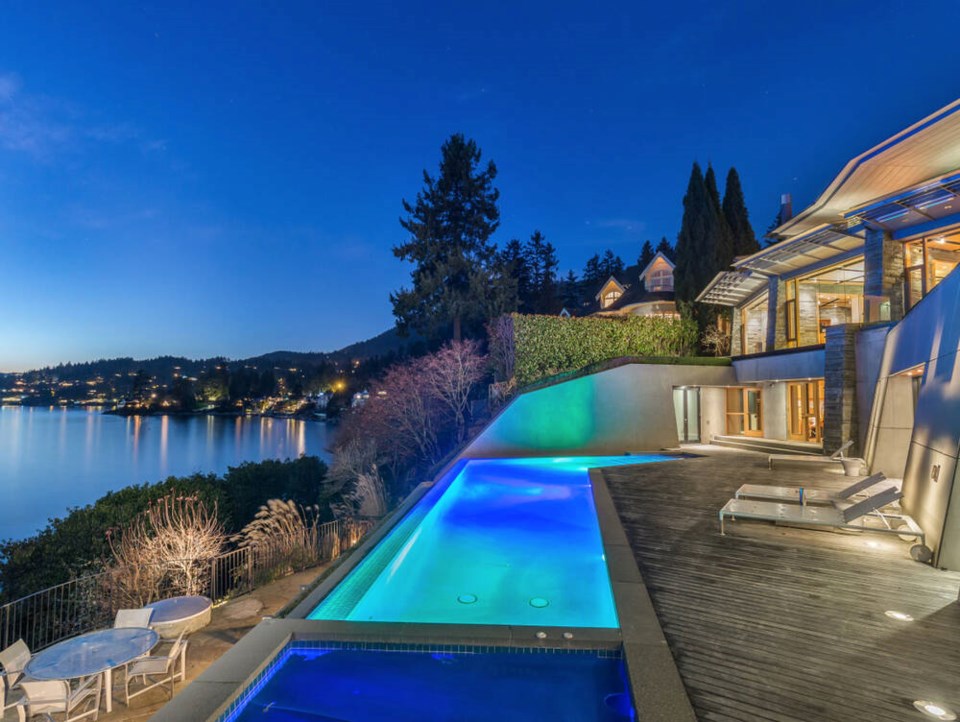Sales of luxury homes are declining in Vancouver, creating a unique window for buyers to capitalize on a market defined by transitory interest rates, political uncertainty and growing inventory, says a new report.
During the summer months, luxury residential real estate sales over $4 million in the City of Â鶹´«Ã½Ó³»fell 13 per cent to 49 sales in July and August, compared to the same period in 2023, according to Sotheby’s International Realty Canada.
The firm’s Oct. 23 report found there were 12 luxury sales over $4 million in September, down 52 per cent from 25 properties sold during the same period last year.
Factors behind the buyer's market include the high cost of living, public safety concerns, the uncertain political climate and a greater willingness by sellers to negotiate, said the brokerage’s president and CEO, Don Kottick.
“We definitely have moved into or shifted to a buyer’s market,” he said.
“We’re definitely seeing some softer sales. A lot of it has to do with challenges related to high housing prices, the high cost of living, and then there’s some of the recent outbursts with safety concerns. As a result of that, what happened is market sentiment in Â鶹´«Ã½Ó³»has been somewhat dampened.”
In addition to concerns about crime and disorder, Kottick also pointed to political uncertainty at the provincial and federal levels as a factor in reduced demand for luxury homes.
“Whenever there’s an election you never know what the impact is going to be,” he said. “When we have the federal election, we will see somewhat of a market reaction. Some people were taking a wait-and-see approach to see what would happen in the provincial election. These are all things that have kind of basically impacted the market.”
He also highlighted the federal government’s ban on foreign buyers until 2027, which has resulted in almost all buyers being local, with very little interprovincial migration.
Still, the biggest determinant may be the Bank of Canada’s adjustment of its key rate, which was reduced Wednesday from 4.25 per cent to 3.75 per cent, the latest easing from a recent five-per-cent peak.
“We’ve had a couple of rate drops and with each one, we always expect more of these buyers to come from the sidelines,” Kottick said.
“At some point, the market is going to be re-engaged. Rates have come down substantially and some people will think there is an opportunity in the market before we start to see things moving the other way. … People could sense that there could be unique opportunities for buyers and investors to capitalize on where we are in the current market.”
Kottick said while interest rates may not necessarily sway buyers in the “ultra-luxury” segment of $10 million and above, they do make a difference to purchasers crossing the $4-million threshold from the "conventional" to luxury levels.
With growing inventory and more listings to choose from, buyers may find that sellers are more willing to negotiate.
“If you go back maybe a year or so ago, there was a huge gap between what buyers’ expectations were and what sellers’ expectations were,” Kottick said.
“We’re starting to see that gap over time closing. … I think sellers coming on the market now are much more realistic than they were a year or so ago, and as a result of that, because that gap has closed, it’s resulted in more successful negotiations than what would have happened a year or so ago.”
The Sotheby’s Canada CEO said detached homes remain the preferred category for luxury buyers.
“Single-family homes are what people want, and we’ve seen a softening of the condo market specifically in Â鶹´«Ã½Ó³»and Toronto at this time.”

